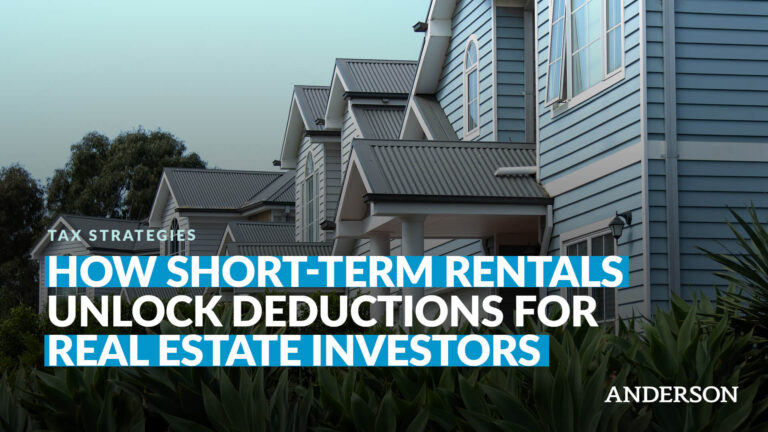
You might own the properties in your investment portfolio, but robust landlord-tenant laws leave these homes vulnerable to legal disputes. Legal fees and damages can seriously deplete your assets if a tenant files a claim against you. Understanding how to protect your portfolio proactively can keep your properties safe if a tenant takes legal action.
Key Takeaways
- A comprehensive landlord insurance policy can provide financial protection if a tenant sues after getting hurt on the property.
- Limited liability companies and asset protection trusts can protect properties in your portfolio.
- Stripping equity may reduce the chances of getting involved in an expensive legal battle.
- Screening tenants and tradespeople and maintaining the property well helps to reduce risk.
- Up-to-date documentation can be valuable evidence during a landlord-tenant dispute.
- A lawyer experienced in managing landlord-tenant disputes can advocate for you.
- Settling disputes out of court may save you money.
Tax & Asset Protection Workshop
Learn about Real Estate & Asset Protection at our next
FREE LIVE STREAM
Maintain Landlord Insurance
Landlord insurance can provide crucial financial protection for your portfolio. Most good landlord insurance policies comprise several types of coverage. If a tenant gets injured on one of your rental properties and decides to sue, liability coverage may pay for their medical bills, lost income, and compensation for emotional distress, along with any legal and court fees. Coverage for damage to your personal property and loss of rental income if your tenant needs to relocate during repairs are common components of a landlord insurance policy.
For extra peace of mind, you might consider purchasing an umbrella policy. These policies provide additional coverage after you’ve reached your landlord insurance policy’s coverage limits. This extra coverage may be useful if a tenant suffers a major injury on your property and needs extensive rehabilitation. Umbrella policies can also cover multiple rental properties in different locations, unlike landlord insurance specific to a particular property.
Consider Forming LLCs
If your portfolio has separate properties, you may consider setting up different LLCs for each one. An LLC is a legal business entity formed to hold the property and is responsible for paying the property’s mortgage and operating expenses. Forming a separate LLC for each rental property protects the other properties in your portfolio and personal assets. If a tenant makes a claim, it can only impact the LLC that holds the property they’re renting, not the other LLCs and their properties.
Think About Holding Property in an Asset Protection Trust
Holding your properties in an asset protection trust is another way to protect them. Once you put a rental property into the trust, you transfer ownership to someone you have confidence in, such as a family member. As the property is no longer in your control, it’s difficult for a tenant who makes a claim against you to access it. That makes this trust different from a revocable living trust, where you maintain ownership.
As putting a property in an asset protection trust involves transferring ownership, it can be a good option for senior investors who intend to pass properties in their portfolio down to their heirs in the near future. Ensure you have enough funds outside the property before transferring it to an asset protection trust.
Strip Equity From Your Property
If you maintain valuable properties without mortgages, you’re an attractive prospect for a tenant’s attorney chasing a big settlement. You can make yourself less of a target by stripping the equity from your property. Taking out a mortgage or borrowing against a property’s equity are some of the most common equity-stripping strategies.
Reduce Your Risk of Claims
Preventing claims from occurring in the first place is always the best strategy for protecting your portfolio. Performing due diligence before inviting people onto your property can reduce your risk of renting to bad tenants and hiring unreliable tradespeople. Screen prospective tenants, review their credit reports, and check their references. This early research can tell you whether your potential renter has a history of making claims against landlords.
Ensure any tradespeople you hire are fully insured and have good references. If an uninsured contractor harms a tenant, you may be liable for their medical bills and other damages. Tradespeople with good references are more likely to make sound repairs that don’t put your tenants at risk. You can also reduce your risk of disputes by acting on repair requests promptly to keep your tenants happy.
Keep Records of All Property-Related Information
If you must go to court, your lawyers will need evidence to support your case. Keeping a record of all information related to your property can help prove you’re in the right. It’s a good idea to keep information for at least five years, as you never know when claims could arise.
Keep copies of your rental agreement, receipts for repairs, rental payments, and correspondence between you and your tenants and tradespeople. Physical receipts can fade over time, so make physical or digital copies. If you have property-related conversations in person, follow up with an email explaining the discussion so you have the information in writing.
Consult an Experienced Lawyer
A lawyer with experience handling landlord-tenant disputes can provide valuable advice to help you maintain your portfolio. It’s wise to consult a lawyer as soon as your tenant makes a claim against you to ensure you don’t say or do anything to hurt your case. Many lawyers will give you advice before you commit to hiring them, so you can assess their knowledge and see if you’re a good fit. Your lawyer can offer guidance throughout the resolution process, manage the paperwork, and advocate for you if the case goes to court.
Talk About Any Issues With Your Tenant Privately
Most tenants want to avoid taking their claims to court. They file lawsuits as a last resort because they’re frustrated or angry. Having a calm, open conversation with your tenant can help them understand your point of view and feel more relaxed about the situation.
Try to stick to the facts rather than getting emotional. Bring a copy of the lease agreement and refer to any parts supporting your viewpoint. For example, they may not realize they’re responsible for minor repairs. Listen to their viewpoint and establish whether you can find a mutually satisfactory compromise. Cooperating is in your best interest, as it can encourage them to drop their claim.
Try Alternative Dispute Resolution for Hostile Tenants
If the tenant is hostile or unwilling to meet with you privately, they may be open to alternative dispute resolution. Also known as mediation, this process involves discussing the matter with a mediator. They help facilitate healthy communication between both parties. While a mediator can’t make legally binding judgments as a judge can, they may help you and your tenant resolve your dispute without appearing in court.
The team at Anderson Advisors specializes in asset protection, so we’re the perfect people to help you maintain your portfolio and minimize the impact of any disputes with your tenants. Schedule a consultation for expert legal guidance you can trust.
Free Strategy Session with an Anderson Advisor
Receive a detailed risk assessment to assist in lowering problem areas that could wipe out all of your assets with one wrong move. Speak with an Anderson Professional Advisor to get your FREE Strategy Session.
Limited-Time Offer: ($750 value.)
















